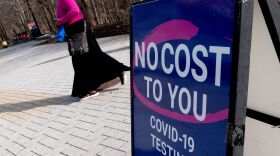Austin's public health agency is now administering free additional booster doses of the COVID-19 vaccine to certain groups and aligning with federal guidance for people who received a Johnson & Johnson vaccine.
A second booster shot, either Pfizer or Moderna, is available to people 50 and older who had their first booster at least four months ago.
An additional Pfizer booster is available to some immunocompromised individuals 12 and older, again with at least four months removed from their first booster. Same goes for a second Moderna booster for people 18 and older. That could include people with cancer, transplant recipients and those using medication that weakens their immune system.
Vaccines at APH clinics are free and require neither identification nor insurance.
Data from the Texas Department of State Health Services show nearly 3 out of 4 eligible people in Travis County have received their first two vaccine doses. But only about half of the eligible population has been boosted.
Even with COVID-19 infections and hospitalizations low, Austin Public Health Medical Director Desmar Walkes says the new guidance is an important consideration for people at increased risk of contracting the virus.
The health agency also aligned with guidance from the Centers for Disease Control and Prevention for people who've received either a first dose or booster dose of the Johnson & Johnson vaccine.
The CDC is recommending people who've gotten J&J shots to consider an additional dose of either the Pfizer or Moderna mRNA shots four months after they were boosted.
During the recent omicron surge, the CDC reports, people who had their booster shots were 21 times less likely to die from the virus.










